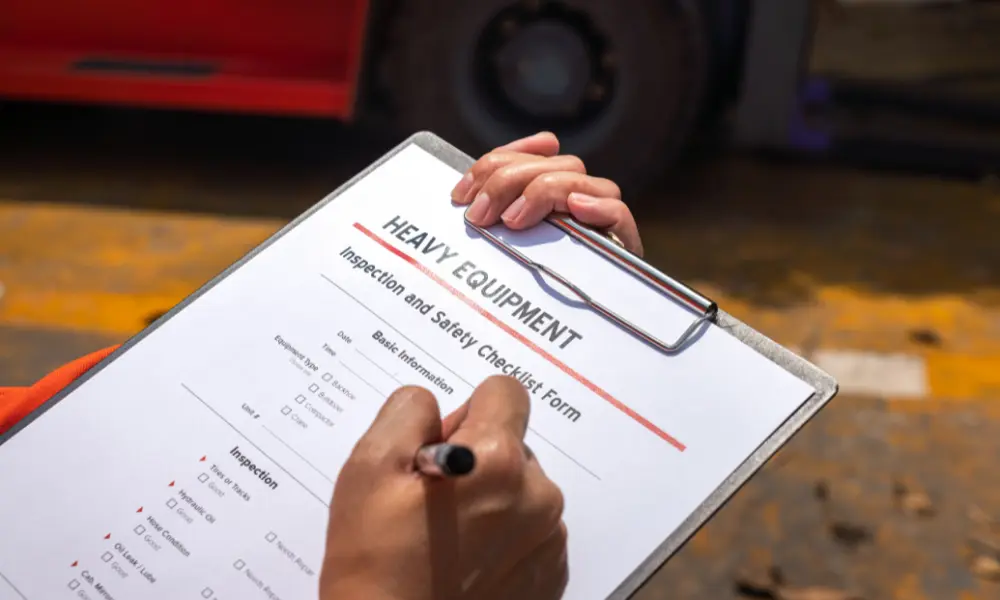Tennessee residents, navigating vehicle inspection requirements can sometimes feel overwhelming. Davidson County is currently the only county in Tennessee that mandates emissions testing for vehicles powered by gasoline or diesel that weigh 10,500 lbs or under. Understanding these rules ensures compliance and helps keep your vehicle safe.
If you own a car in TN, you’ll want to know where to get it inspected and what exemptions might apply. Stay informed and make the process as seamless as possible so that you can hit the road with peace of mind.
Eligibility and Requirements
In Tennessee, vehicle inspection rules can vary based on your vehicle type, its age, and where you live. Understanding these specifics can help ensure you meet all requirements and avoid any issues.
Determining Inspection Necessity
Vehicle inspections in Tennessee primarily depend on the county where you are registering your vehicle. Currently, only Davidson County requires emissions testing. If your vehicle is a model year 1975 or newer and powered by gasoline or diesel, it likely needs an emissions test.
Weight is another factor; vehicles must weigh 10,500 lbs or less to require testing. Motorcycles and many hybrid vehicles are often exempt from these inspections. Reconstructed or salvaged vehicles will still need to meet inspection standards to be roadworthy.
Required Documents
Before heading to an inspection, make sure you have the necessary documents. You’ll need your vehicle registration or proof of insurance. If your vehicle is newly purchased, you must have the bill of sale. Bring identification as well, such as a driver’s license.
If your car is a reconstructed or salvaged vehicle, ensure you have the proper paperwork that shows it meets safety standards. The Vehicle Identification Number (VIN) must match the documents you provide to avoid any issues during the inspection.
Types of Inspections
There are different types of inspections in Tennessee. The most common is the emissions test, required in Davidson County. This ensures your vehicle does not emit pollutants beyond the legal limit. Next is the safety inspection, which checks critical systems like brakes, lights, and tires to ensure your car is safe to drive.
Emissions tests are generally quick but must be completed within 90 days before renewing registration. Safety inspections and approvals are especially crucial for reconstructed and salvaged vehicles to get back on the road legally. If you own a hybrid vehicle, check if it qualifies for vehicle exemption to make your inspection process smoother.
Inspection Locations and Procedures
In Tennessee, vehicle inspections are required in select counties and involve specific tests. Knowing where to go and what to expect can make the process smoother.
County-Specific Information
Davidson County is the primary location where vehicle emissions inspections are mandatory. As of January 14th, 2022, it is the only county in Tennessee requiring this test. If you live in Davidson County, you will need to visit an official inspection site. Other counties like Williamson, Rutherford, Hamilton, and Sumner focus on different vehicle safety checks instead.
In Davidson County, emissions testing centers are widely available. Look for locations certified by the state to ensure compliance with Tennessee regulations. You can find a list of these certified locations online.
Testing Procedures and Equipment
During your vehicle inspection, several tests are performed to ensure your car meets environmental and safety standards. The catalytic converter test checks for proper exhaust emissions, essential for vehicles in Davidson County. Another crucial test is the gas cap check, which ensures the cap is sealing correctly, preventing fuel vapors from escaping.
The tailpipe test measures the car’s emissions directly from the exhaust to ensure they fall within acceptable limits. For safety inspections in other counties, the focus might be more on vehicle components like brakes and lights. These tests are generally performed using certified equipment, and the inspectors often hold Automotive Service Excellence (ASE) certification.
Understanding these procedures and what to expect can help you prepare better for your vehicle inspection.
Fees and Costs Associated
When dealing with vehicle inspections in Tennessee, you should be aware of the various fees and costs, including inspection fees, the payment methods accepted, and potential repair costs.
Inspection Fees
In Tennessee, the inspection fee for your vehicle varies depending on factors such as the county you reside in and the type of vehicle you own. For example, vehicles in Davidson County must undergo emissions testing, which has a specific fee you need to pay.
Inspection fees typically cover the actual emissions test and any administrative costs associated with the inspection process. It’s essential to check the specific fee for your county and ensure you have the correct payment amount ready when you visit the inspection site.
Payment Methods
Payment methods for vehicle inspections in Tennessee generally include cash, credit cards, and sometimes debit cards. It’s always a good idea to confirm with the inspection center ahead of time what forms of payment they accept.
Some centers might have specific preferences or restrictions, and being prepared can save you time and hassle. Make sure to bring a valid form of ID if you’re paying by credit card to avoid any complications.
Cost of Repairs
If your vehicle fails the inspection, you will need to address any necessary repairs to bring it up to the required standards. The cost of these repairs can vary widely, depending on what’s needed. Common issues might involve the exhaust system, engine emissions, or other mechanical problems.
Keep in mind that you might also have to pay a re-inspection fee once your repairs are completed. To manage costs effectively, get a detailed quote from a trusted mechanic and ensure they guarantee the repairs will meet the inspection standards.
After the Inspection
After your vehicle inspection, you will need to know what actions to take based on whether your vehicle passed or failed the emissions test. You might also look into the next steps for renewing your vehicle registration to make sure you are driving legally in Tennessee.
Passing the Inspection
If your vehicle passes the inspection, you’ll receive a certificate. This document is important because it proves that your vehicle meets the required emissions standards. Keep this certificate in a safe place, as you will need it when you renew your vehicle registration.
The emissions test is valid for 90 days. If you don’t renew your registration within this period, you might need to take the test again. You should aim to get your registration renewed as soon as possible to avoid having to repeat the inspection.
Failing and Retesting Options
If your vehicle fails the emissions inspection, don’t worry. You’ll get a report that explains why your car didn’t pass. Common issues might include problems with the catalytic converter or gas cap.
You can take your car to a mechanic to fix the issues listed in the report. After the repairs are made, you’ll need to have your vehicle retested. It’s best to retest within 30 days, as some counties in Tennessee offer a free retest within this timeframe.
Renewing Vehicle Registration
Once your vehicle passes the emissions test, you can move ahead with renewing your vehicle registration. This process is usually straightforward. You can renew online, by mail, or in person at a Tennessee Department of Revenue office.
During renewal, you’ll provide your emissions test certificate, proof of insurance, and pay the registration fee. The fee can vary depending on your vehicle type and county. For example, Davidson County requires emissions testing and charges an inspection fee, which is often included in the registration fee.
By keeping track of these steps, you’ll ensure that your vehicle stays compliant with Tennessee’s vehicle inspection requirements.
Special Cases and Exemptions
Understanding special cases for vehicle inspections in Tennessee is crucial. Some vehicles are exempt from smog checks and other inspections, while salvage and reconstructed vehicles have unique rules.
Exemptions for Specific Vehicles
Certain vehicles in Tennessee do not need to undergo regular smog checks or emissions tests. These include vehicles older than 25 years, electric cars, and motorcycles. This exemption helps reduce the testing burden on owners of older or alternative fuel vehicles.
In some testing areas, such as counties with lower air quality, exemptions might be less common, so it’s important to check local rules. For example, Davidson County may have stricter requirements compared to more rural counties.
Additionally, vehicles that run on diesel and weigh more than 10,500 pounds are often exempt from regular emissions tests. Understanding these smog check exemptions can save you time and effort when it’s time to renew your vehicle registration.
Special Considerations for Salvage and Reconstructed Vehicles
If you own a salvage or reconstructed vehicle, you must follow specific state regulations. Before you can register such a vehicle, it must pass both anti-theft inspections and emissions tests. This process ensures the car is safe and meets environmental standards.
Salvage vehicles need an approved certificate confirming they have passed the necessary anti-tampering inspections. This ensures essential components like the catalytic converter and gas cap are in place and functioning correctly.
If you’ve assembled or rebuilt a vehicle, special rules also apply. Reconstructed vehicles must meet the same emissions standards as standard vehicles. This means your rebuilt car should be free of modifications that could affect emissions.
Always ensure you have all required documents, including proof of inspection, to avoid delays in registration. Understanding these special considerations can make dealing with salvage or reconstructed vehicles much smoother.















